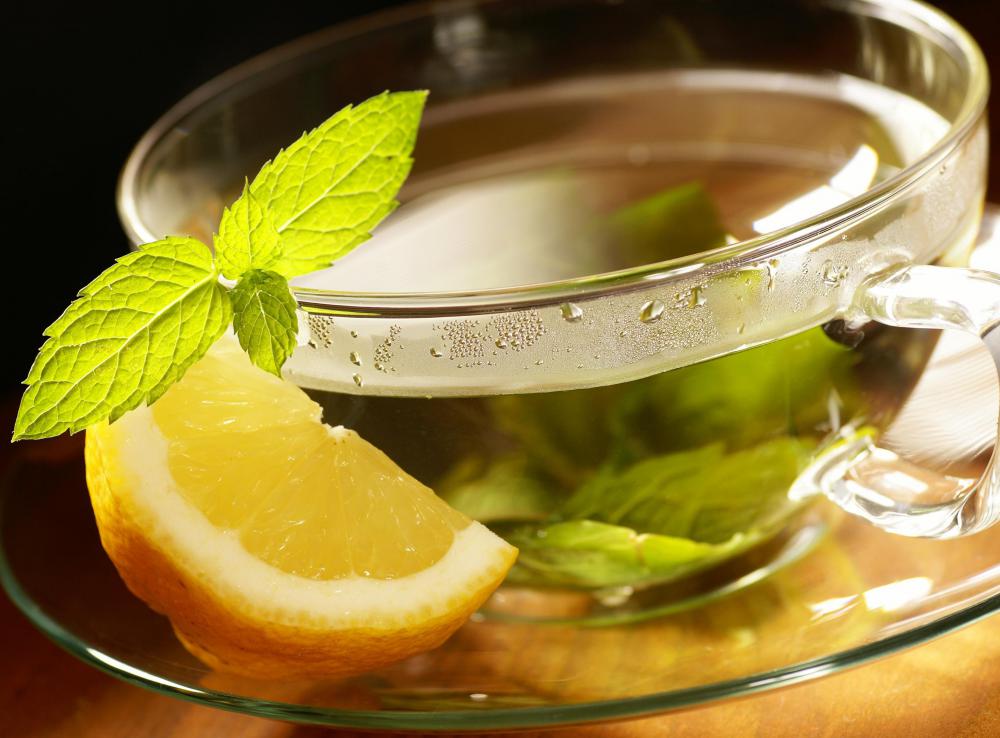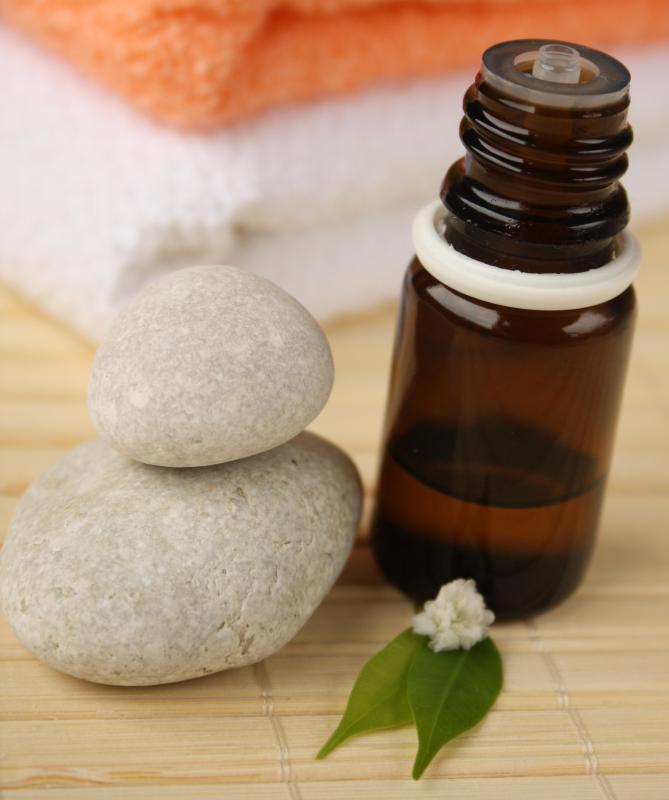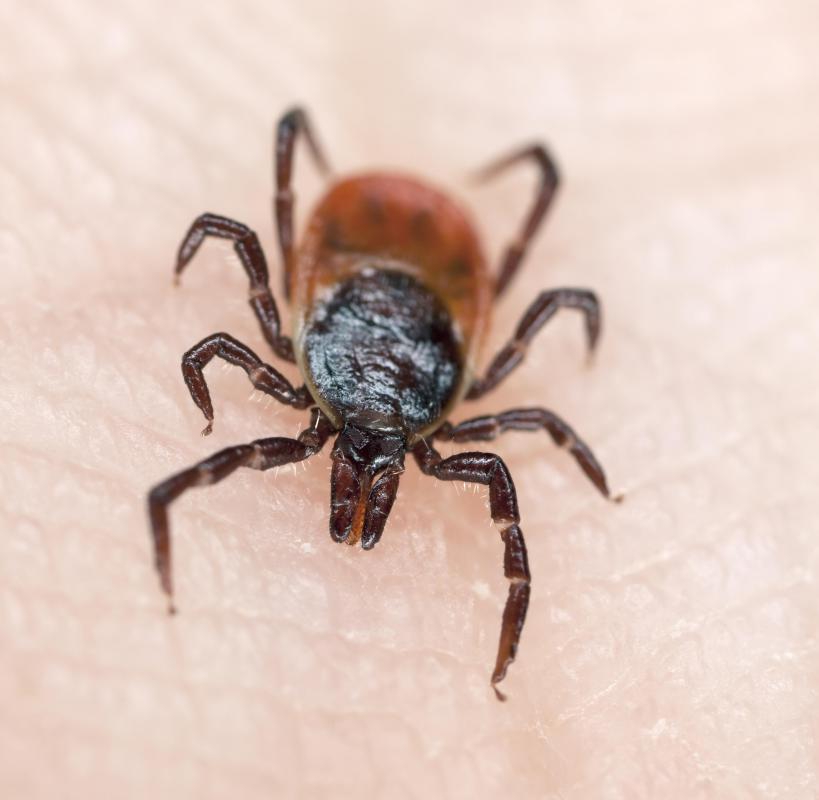At WiseGEEK, we're committed to delivering accurate, trustworthy information. Our expert-authored content is rigorously fact-checked and sourced from credible authorities. Discover how we uphold the highest standards in providing you with reliable knowledge.
What is Mentha Pulegium?
Mentha pulegium, more commonly known as pennyroyal, is an herbaceous perennial plant in the mint genus. Native to southern and central Europe, the plant was introduced to North America with the first European settlers and has since naturalized in wild, temperate regions around the world. Smaller than other types of mints, this herb creeps along the ground and spreads rapidly through its underground root system. Often found in moist soil along the edges of ponds, streams and ditches, pennyroyal grows abundantly in wild areas, though some herb gardeners also cultivate the plant.
Growing up to 12 inches (30.48 centimeters) in height, Mentha pulegium is a small plant that produces dense whorls of pink, purple or blue blossoms during mid- to late-summer. Like other plants in the genus, pennyroyal is highly aromatic and contains essential oil similar to that of other mints, though less potent. The herb's taste has been described as less pleasant and more acrid than that of spearmint or peppermint, and its smell is pungent and slightly minty.

Mentha pulegium is a traditional herbal remedy and culinary herb used for hundreds of years by various cultures. The plant was particularly well-loved by the Romans, who used it as a flea repellent and a cooking herb. The herb's culinary use has fallen out of favor since the Middle Ages, likely due to its pungent taste and aroma. Although modern herbalists don't cook with pennyroyal, it is still valued for its medicinal and insect-repelling properties. Fresh leaves rubbed on the skin may keep biting insects at bay and tea made from pennyroyal leaves is an old-fashioned herb remedy for colds and menstrual problems.

Although pennyroyal tea is believed to be safe for human consumption in small quantities, it can cause serious medical problems when taken for longer than five days at a time. The most popular use of the tea is settling an upset stomach, but other traditional uses of the beverage include the treatment of fainting, gout, tumors, headaches, hysteria and unhealthy gums. Mentha pulegium tea or infusion should never be used by women who are pregnant, as it could stimulate the uterus and cause a miscarriage. Pennyroyal essential oil is extremely concentrated and highly toxic, and should never be ingested.

Many gardeners cultivate Mentha pulegium, as it is easy to grow and adds interest to the herb garden with its colorful flowers and spreading growth habit. The plant requires full sun to partial shade and moist soil with average fertility. Seeds can be sown directly in the garden about two weeks before the last frost of the year, or container-grown plants can be planted 6 to 10 inches (15.24 to 25.4 centimeters) apart in a well-prepared garden bed. Regular watering benefits the herb, but the top 1 inch (2.54 centimeters) of soil should be allowed to dry out between applications.

Leaves harvested from home-grown Mentha pulegium plants are often used to make tea or dried and placed in pet bedding to repel fleas. Sprigs are harvested when the plant has reached at least 8 inches (20.32 centimeters) in height or the stems are at least 8 inches (20.32 centimeters) in length. Leaves are best harvested for drying during the spring and summer months, just after or before the plant blooms. If using the leaves fresh, harvest any time of the year, although the herb is most fragrant just before, during, and after it blossoms.
AS FEATURED ON:
AS FEATURED ON:
















Discussion Comments
So pennyroyal is a natural insect repellent, and is especially good for repelling fleas, according to my research. That alone makes it worth having in the yard. We've had a terrible time with fleas, and I would just as soon repel them naturally as to have to spray chemicals in my house.
One of my kitties suffers from flea bites, but doesn't tolerate the treatment for them very well. Maybe having pennyroyal in the yard would help cut down the flea population. That could only be a good thing. Anything natural to get rid of fleas would be welcome in my house!
I remember reading in a novel ("Forever Amber" maybe?) about a woman of the English court trying to use pennyroyal to induce an abortion. Seems like she succeeded at least once, and then it killed her.
Pennyroyal is one of those herbs you do read about occasionally, but rarely see. I don't know that I've ever seen it growing wild, and have never seen it in a nursery or garden center, either. I didn't even know you could get pennyroyal essential oil. I guess that would be used for skin problems or similar, since you can't ingest it.
Post your comments